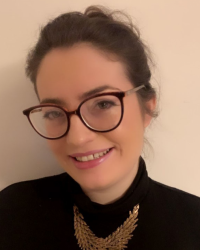Defeating childhood abuse and neglect
Being neglected during childhood can have huge impacts on us for the rest of our lives. The ripples it sends out for so many years later can manifest themselves in feelings of unworthiness, low self-esteem, depression and self-harm/abuse. Alternatively they can come out as anger or violence towards others as we project and mimic that behaviour and continue the cycle.

Sometimes it can be a painful process to even identify that we have experienced this as children, it is hard-wired into us as humans to love and protect our parents unconditionally.
What does it look like?
A physically/sexually abusive childhood where the parent is very angry and aggressive towards the child may be more easy to identify as we can more clearly see that this behaviour is wrong, for example where the child is physically harmed or their basic needs are not met. It may be quite easy to realise we have been abused if we were beaten or starved or molested or left unwashed in dirty clothes.
However emotional abuse/neglect can also be subtler, perhaps the parent on the surface seems to do an adequate job of caring for the child but does not fully meet all of their needs.
Perhaps the parent feeds and clothes them and has a nice well-kept house but does not give the child the full attention and love they deserve, perhaps they are emotionally absent, perhaps they do not notice where their child is or what they get up to. Perhaps they favour one sibling over the other, perhaps they constantly chip away at their self-esteem by telling them they are not good enough or clever enough or able enough to do certain things.
Be mindful not to compare
On our journey to becoming whole, healed individuals, it is important to remember that our stories are unique. We should not compare our hardships to those of others as everything is relative. What can be a massive trauma to one individual may seem trivial to another, so it is important to not measure ourselves against others.
Because there is such a broad spectrum of abuse and we naturally compare our childhoods to others through what we see in the media and what we know of others upbringings, it can be difficult sometimes to identify that we experienced this as children.
That natural urge to love and protect one's parents is such a strong bond that we can lie to ourselves for many years.
However, our mind and our psyche will unconsciously have absorbed this information, this processing. It’s a bit like a blueprint or a set of instructions the mind has created to navigate the world and survive.
So the abused/neglected child has learnt through this treatment that they are not worthy of love, that this is their value. Perhaps they must be inherently bad otherwise their parent would not treat them this way. These lessons are hardwired into the brain from such a young age and are now the set of rules one uses to navigate the world.
The abused/neglected child may turn this inwards and experience symptoms such as unworthiness, low self-esteem, depression, self-harm, substance abuse, PTSD, difficulties forming and maintaining relationships, as well as physical health problems. They may also project the experience onto others, becoming violent, angry and ultimately repeating the cycle and becoming the abuser themselves, either with their peers, romantic partners or their own children.
Physical health conditions linked to childhood abuse and neglect
It may seem strange to think that trauma can lead to physical health conditions, however when we do not process a trauma fully it will be stored in the body in other ways and will present as symptoms, which in some cases may be physical ailments.
Abuse in childhood has been linked to a wide range of physical health conditions including diabetes, lung disease, heart attack, arthritis, back problems, high blood pressure, migraine headaches, chronic bronchitis/emphysema/chronic obstructive pulmonary disease, cancer, stroke, bowel disease and chronic fatigue syndrome. (Widom, Czaja, Bentley, & Johnson, 2012; Monnat & Chandler, 2015; Afifi et al., 2016).
How can hypnotherapy help with childhood abuse and neglect?
Using hypnotherapy, we can gently explore our personal stories and experience. To be able to move on from the trauma of an abusive/neglectful childhood we need to deal with a multitude of different aspects. This involves coming to terms with the fact that it happened, dealing with the unresolved emotions connected with the parent(s) and removing feelings of shame and self-blame.
Reframing how we see our parents can be a painful process, when our current relationship with them is good it can actually be harder than where the parent/child relationship has broken down as we are having to reframe that image of them and see it in a different light whilst often still loving that parent and wanting to protect them.
By reprocessing these trapped emotions and giving them a platform to be heard and fully expressed we can finally let them go, replacing feelings of unworthiness with new positive feelings of self-belief and moving forward feeling happier, confident and empowered.

Find a hypnotherapist dealing with PTSD
All therapists are verified professionals



